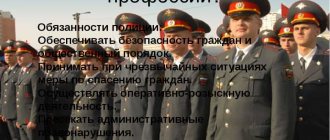New edition of Art. 57 Code of Criminal Procedure of the Russian Federation
1. Expert - a person with special knowledge and appointed in the manner established by this Code to conduct a forensic examination and give an opinion.
2. The calling of an expert, the appointment and conduct of a forensic examination are carried out in the manner established by Articles 195 - 207, 269, 282 and 283 of this Code.
3. The expert has the right:
1) get acquainted with the materials of the criminal case related to the subject of the forensic examination;
2) apply for the provision of additional materials necessary for giving an opinion, or the involvement of other experts in the forensic examination;
3) participate, with the permission of the inquirer, investigator and the court, in procedural actions and ask questions related to the subject of the forensic examination;
4) give an opinion within the limits of their competence, including on issues that, although not raised in the resolution on the appointment of a forensic examination, are related to the subject of the expert study;
5) bring complaints against the actions (inaction) and decisions of the inquiry officer, the head of the inquiry unit, the head of the inquiry body, the inquiry body, the investigator, the prosecutor and the court that limit his rights;
6) refuse to give an opinion on issues that go beyond the scope of special knowledge, as well as in cases where the materials presented to him are insufficient to give an opinion. The refusal to provide an opinion must be stated by the expert in writing, outlining the reasons for the refusal.
4. The expert has no right:
1) without the knowledge of the inquirer, investigator and the court, negotiate with participants in criminal proceedings on issues related to the conduct of a forensic examination;
2) independently collect materials for expert research;
3) conduct research without the permission of an inquiry officer, investigator, or court that could lead to the complete or partial destruction of objects or a change in their appearance or basic properties;
4) give a knowingly false conclusion;
5) disclose data from the preliminary investigation that became known to him in connection with his participation in a criminal case as an expert, if he was warned about this in advance in the manner established by Article 161 of this Code;
6) evade appearing when summoned by an inquiry officer, investigator or to court.
5. For giving a knowingly false conclusion, an expert is liable in accordance with Article 307 of the Criminal Code of the Russian Federation.
6. For the disclosure of preliminary investigation data, the expert is responsible in accordance with Article 310 of the Criminal Code of the Russian Federation.
Legal advice on comments to Art. 57 Code of Criminal Procedure of the Russian Federation
- Where can I find a current list of forms (with samples) of criminal procedural documents? This is meant as previously in force in ch. 57 of the Code of Criminal Procedure of the Russian Federation, a list of procedural documents. Thanks in advance for your insightful answer!! Lawyer's answer:
The list of forms (with samples), previously in force and annex to the Code of Criminal Procedure, has been excluded. Until now, since the exclusion of those forms of procedural documents, there have been NO approved, legal forms. I know from experience that even in one subject of the federation, in its different territories there are completely DIFFERENT forms for the same procedural actions. Precisely because of the lack of strictly regulated ones.
- Lawyer's answer:
interestingly, in the criminal code and the Code of Criminal Procedure there is no word about this mysterious product - apparently something was overlooked, in turn, what do you think - is it legal to purchase PDM-3YA or YARM?? ? or transportation of KPTM-3????or NVU-P products???? By the way, you can carry and carry this weight completely legally - if you like it so much - there are no prohibitions on wearing it or storing it or transporting it - no, really you can’t use it while hunting - the only legal restriction - yes, and I think that if you drive a car in this device, the Gaians won't be very happy
- in legal systems such as guarantor, consultant+
- Take the Code of Criminal Procedure and draw it up yourself.
- In essence, little has changed, but the competence of the investigator, the head of the investigative department, and the prosecutor has seriously changed. Therefore, you can use old forms subject to changes.
How are experts different from forecasters?
- Experts justify the reason for the failure of the prediction
Expert: the probability of Chinese aggression against Russia is 95%. What do you think about this?
- There is a possibility, of course, just like the possibility that Andorra will attack Russia. But not the one described by the “expert”. Moreover, to fight in Siberia, and even against a country with nuclear weapons. A few missiles and Beijing, Shanghai, Guangzhou and others will turn into...
Who is an expert? And what can you eat it with?
- It is useless to argue with an expert. One can only ask why his opinion is this way. If you have specific complaints about violations of exhibition rules, you can submit a justified complaint to the organizers right at the exhibition. And so...
Military experts are already predicting the likelihood of war between Russia and Ukraine...Out of words?
- Funny experts...
Who is an expert allrounder?
- An expert who has the right to judge all groups
Legal commentary on Article 58 of the Code of Criminal Procedure of the Russian Federation
The participation of a specialist in procedural actions may be required at any stage of the criminal process:
- search and discovery of evidence;
- correct seizure of found material evidence;
- competent attachment of evidence to the case materials without compromising its appearance, condition and characteristics;
- seizure of objects and documentation during searches;
- use of technical means in court;
- giving professional explanations to the court and participants in the process about situations, incidents, mechanisms, etc.
Accordingly, the involvement of a specialist in the process is possible both at the stage of inquiry or investigation, and at the time of consideration of the criminal case in court.
Involvement must be driven by the need to obtain clarification or guidance.
Circumstances to be clarified:
- Circumstances of the crime.
- The means and method of committing an illegal act.
- The need to discover and seize evidence.
- Explanation of technical means and the possibilities of their use to commit a criminal act.
- A request by one of the parties to obtain a written opinion from a specialist in the scientific field.
The legal commentary focuses on the possibility of involving a teacher or psychologist as a specialist. . As an example, if there is a need to interrogate a minor or a person with a mental disability
The participation of this category of professionals is mandatory to protect the rights of incapacitated citizens or persons with limited legal capacity, as well as for the purpose of correct interpretation by the court or the investigation of their explanations.
As an example, if there is a need to interrogate a minor or a person with a mental disability. The participation of this category of professionals is mandatory to protect the rights of incapacitated citizens or persons with limited legal capacity, as well as for the purpose of correct interpretation by the court or the investigation of their explanations.
The Supreme Court's recommendation regarding the involvement of a specialist and expert explains that in cases where the expert opinion obtained is not sufficient to resolve all issues, the parties or the court, on their own initiative, can attract a specialist. As a rule, the form of a standard conclusion does not allow a comprehensive explanation of the circumstances of the case. The expert is located remotely, works with the materials that are provided to him for examination and answers only questions posed in writing.
Calling a specialist and communicating with him directly, both during the preliminary investigation and at the consideration stage, allows you to get much more answers. By working with a person who has the necessary technical or scientific knowledge, you can immediately get rid of existing doubts among all participants in the case.
The specialist’s explanations are not included in any form or conclusion. They are drawn up in a standard protocol of an interrogation or court session, as with witnesses. The recommendations and explanations of this participant can be drawn up as a written conclusion, a sample of which is explained by the court.
The peculiarity of a specialist’s conclusion is that he expresses his own, purely personal opinion, which consists of the special knowledge that he possesses. The assessment he provides will certainly play a role in the process, however, it cannot be called indestructible, unlike an examination.
Still, it is much easier to question the word of this participant. The specialist is not allowed to take away any case materials or receive items for carrying out technical work in laboratory conditions. His explanations are more methodological than practical. It is difficult to call a specialist a practitioner, because he does not conduct any technical and laboratory analyzes and comparisons. His words are recorded by other participants in the criminal process: interrogators, investigators or the court.
When a problem arises due to a lack of knowledge or explanations, either party can exercise the right to call a specialist if his explanations fill the gap of missing information.
It is clear from the procedural status that even if the case is considered with the participation of a specialist, this cannot replace the expert’s opinion, his explanation and conclusions.
Who is it
This is a specialist who has certain knowledge in order to give a judgment on any issue. An expert may be brought in to assess the condition of items in order to determine their value, so that the court can make an objective decision on the case.
They are attracted by investigative authorities, courts and other government agencies to obtain results from research using various technical means. This is necessary to clarify those nuances that fall within his professional competence under Part 1 of Art. 58 Code of Criminal Procedure of the Russian Federation.
Art. 85 of the Code of Civil Procedure of the Russian Federation defines the rights and obligations of an expert in civil proceedings. Below we will talk about the differences between this term in different legal acts.
Does the concept of the Code of Criminal Procedure differ from the Arbitration Procedure Code and the Code of Civil Procedure of the Russian Federation?
The definitions given in the Code of Criminal Procedure and the Arbitration Procedure Code of the Russian Federation essentially coincide with each other. They say that these are specialists who have knowledge on the issue that is proposed to him for consideration , and therefore are invited to give their opinion. The definition is given in Art. 55 APC and Art. 57 Code of Criminal Procedure of the Russian Federation.
In the Code of Civil Procedure of the Russian Federation, this concept is discussed in Art. 85. According to it, an expert is a specialist who is entrusted with carrying out a particular examination and who is obliged to comprehensively study the information or objects transferred to him by the court and provide an exhaustive analysis of their properties and features.
He is also obliged to send the results of his examination, as well as appear in court to comment on the work he has done and answer possible questions. If they are beyond his competence, then he must submit a letter to the court explaining this.
Who can be an expert
To become an expert, you first need to have the appropriate education and also work for some time in your immediate specialization. This must be a professional in his field in order to give a complete and objective opinion on a particular issue.
The necessary conditions for inviting an expert are:
- the internal conviction of the specialist himself that he has the necessary knowledge and experience to conduct a particular examination;
- availability of documents confirming his competence (diploma of graduation from a higher educational institution, other certificates, etc.).
These two factors are decisive when choosing an expert.
Commentary to Art. 59 of the Criminal Procedure Code of the Russian Federation
Comments on the articles of the Code of Criminal Procedure will help you understand the nuances of criminal procedure law.
1. The activities of a translator are determined by the presence of the constitutional principle of equality of citizens regardless of nationality and language, the right to use their native language and choose the language of communication (Articles 19, 26 of the Constitution). In accordance with this, the Code of Criminal Procedure establishes rules on the language of legal proceedings (Article 18) and at the same time provides for the right of persons participating in the case to exercise their rights in criminal proceedings in their native language or another language that they speak, as well as to use the services of an interpreter free of charge.
2. In cases provided for by the Code of Criminal Procedure, investigative and judicial documents are subject to mandatory delivery to the suspect, accused, as well as other persons participating in the criminal process. These documents must be translated into their native language or into a language spoken by the relevant participants in criminal proceedings (see commentary to Article 18).
3. Part 2 of the commented article establishes that a translator is appointed only by the person responsible for conducting a criminal case. The person appointed as an interpreter in accordance with Part 2 is a participant in the criminal process, endowed with procedural rights (Part 3) and responsibilities (Part 4) corresponding to his role. Before appointing a translator (by issuing a resolution, ruling), the investigator, investigator, prosecutor, judge, court must make sure that the person appointed as translator speaks the language the knowledge of which is necessary for translation. Then the subjects responsible for the conduct of the criminal case must find out whether there are circumstances that give reason to believe that the person appointed as the translator is directly or indirectly interested in the outcome of the case.
4. The circumstances that exclude the translator from participation in the case are determined by Art. 61 Code of Criminal Procedure. If these circumstances exist, during the investigation, during the preliminary investigation and in court, the translator may be challenged (see commentary to Article 69).
5. A person’s performance of the functions of a translator is incompatible with his participation as another subject of criminal proceedings. The Supreme Court of the Russian Federation recognizes significant violations of the criminal procedural law, entailing the cancellation of the sentence, in the following cases: a) consideration of the case in the absence of an interpreter, if at least one of the judges does not speak the language of the proceedings; b) combining the functions of a translator and an investigator by one person (BVS RSFSR. 1984. N 7. P. 7).
6. An explanation of the provisions provided for in parts 3 – 5 of the commented article and a warning about liability for incorrect translation are made before the person begins to perform the functions of a translator, as noted in the relevant protocols. In court proceedings, the judge explains to the translator his rights and responsibilities as one of the priority actions in the preparatory part of the trial (Article 263 of the Code of Criminal Procedure).
7. The participation of an interpreter in investigative actions is reflected in the relevant protocols, which he signs after familiarizing himself with their contents (Part 5 of Article 166 of the Code of Criminal Procedure).
8. The duties of an interpreter, in addition to those already mentioned, include: appearing when called by officials responsible for the proceedings; execution of translation orders during investigative and judicial actions, as well as procedural documents.
9. Depending on the nature of the offenses committed, various types and measures of liability may be applied to the translator, including for knowingly incorrect translation and disclosure of preliminary investigation data - criminal liability.
10. Judicial practice recognizes as significant violations of the criminal procedural law, entailing the reversal of the sentence, the following facts: a) conducting a preliminary investigation or trial without the participation of an interpreter, if the accused (defendant) does not speak the language in which the proceedings are conducted (BVS RSFSR. 1984. N 7. P. 10); b) failure to provide translation to the defendant of the testimony of witnesses interrogated at the court hearing (BVS RSFSR. 1974. N 10. P. 12); c) failure to provide an indictment translated into a language spoken by the defendant (BVS RSFSR. 1971. No. 9. P. 9).
11. The law provides for the translator’s right to remuneration for performing duties and reimbursement of expenses in connection with appearing when summoned by investigative and court authorities. Amounts paid to the translator are included in the procedural costs. Procedural costs associated with the participation of an interpreter in criminal proceedings are reimbursed from the federal budget.
Expert and specialist (Articles 57, 58 of the Code of Criminal Procedure).
Other participants in criminal proceedings
Other participants –
those who do not perform the main criminal procedural functions (UPF), but only contribute to their implementation. Everyone has their own UPF.
Witness (Article 56 of the Code of Criminal Procedure)
In accordance with Part 1 of Art. 56, a witness is a person 1) who may be aware of any circumstances relevant to the investigation and resolution of a criminal case (factual basis) and 2) who is called to testify (legal basis).
From the moment of receipt of a summons calling a person for questioning, the person becomes a witness, he has rights, obligations, and liability measures may be applied to him. The witness is obliged to appear when summoned and give truthful testimony. For refusal or evasion to testify, as well as for giving knowingly false testimony, he can be brought to criminal liability (Articles 307, 308 of the Criminal Code).
Any person can be a witness, regardless of age, state of health, official position, etc. These can be eyewitnesses, witnesses “from words”. Law enforcement officers who became aware of information in the course of their official activities (investigative investigation, traffic police department, etc.) are witnesses on a general basis. Witnesses can be persons who have already been convicted, acquitted, as well as those against whom criminal prosecution has been terminated. The Code of Criminal Procedure of the RSFSR contained an instruction that a witness cannot be a person who, due to his physical or mental disabilities, is not able to correctly perceive the circumstances that are important to the case and give correct testimony about them.
The current Code of Criminal Procedure does not have such restrictions, but it does provide for the possibility of conducting an examination of a witness to assess the reliability of his testimony (Part 1 of Article 179), as well as ordering a forensic examination (for example, psychological and psychiatric) for the same purpose, also with the obligatory consent of the witness.
The functions of a witness are incompatible with any other procedural functions; the position of a witness takes precedence over other procedural statuses (with the exception of a legal representative. For example, the parents of a legal representative of a defendant can be questioned according to the rules for questioning a witness about the identity of a legal representative, while remaining legal representatives).
Certain categories of persons are exempt from the obligation to testify. There are two forms of such exemption - witness immunity and a direct prohibition of interrogation of certain categories of persons. The ban means that these persons cannot be questioned as a witness under any circumstances, regardless of their wishes. Immunity is the legal right not to be subject to certain laws (privilege). A person who has witness immunity is not obliged to testify and is not responsible for refusing to give it, but retains this right; if desired, he can testify and then turns into an ordinary witness (is liable for knowingly giving false testimony, etc.) .
The following persons have witness immunity:
1) close relatives of the accused (suspect) – clause 4 of Art. 5 Code of Criminal Procedure. This rule has a moral nature, freeing a person from the obligation to testify against people close to him;
2) members of the Federation Council and deputies of the State Duma - about the circumstances that became known to them in connection with the exercise of their powers;
3) persons enjoying immunity from procedural actions by virtue of Art. 3 of the Code of Criminal Procedure (for example, persons entitled to diplomatic immunity).
4) another type of witness immunity applies to all categories of witnesses without exception - the right to refuse to testify against oneself. Even if a person is not an accused (suspect) in a criminal case, he is exempt from the obligation to testify about circumstances that may in any way be blamed on him.
If persons with witness immunity agree to testify, the inquiry officer, investigator, prosecutor and the court are obliged to warn these persons that their testimony may be used as evidence in the course of further criminal proceedings (Part 2 of Article 11 of the Code of Criminal Procedure).
It is prohibited to interrogate as a witness the persons specified in paragraphs 1-4 of Part 3 of Art. 56:
1) judges and jurors - about the circumstances of the criminal case that became known to them in connection with their participation in the criminal proceedings. This refers to the circumstances of the criminal case in which they participated. In another case that was not in their proceedings (for example, about the defendant's escape from the courtroom), judges and jurors may be questioned as witnesses;
2) the defender of the suspect, the accused - about the circumstances that became known to him in connection with the application to him for legal assistance or in connection with its provision (clause 2, part 3, article 56 of the Code of Criminal Procedure).
In the ruling of the Constitutional Court of the Russian Federation dated 03/06/2003 No. 108-O “On the complaint of citizen Tsitskishvili...” an interpretation was given to clause 2, part 3 of Art. 56 of the Code of Criminal Procedure: releasing a lawyer from the obligation to testify about circumstances that have become known to him in cases where this is caused by reluctance to disclose confidential information, clause 2, part 3, art. 56 of the Code of Criminal Procedure of the Russian Federation, however, does not exclude his right to give relevant testimony in cases where the lawyer himself and his client are interested in the disclosure of certain information. However, the exercise of the right of a lawyer to act as a witness in a case is possible under the following conditions: a) a change in the legal status of the defense attorney (the defense attorney becomes a witness, since it is impossible to be both a witness and a defense attorney at the same time); b) respect for the rights and legitimate interests of persons who entrusted the information to the defense lawyer (it is necessary to make sure that the consent of those persons whose rights and legitimate interests are directly related to the confidential information received by the lawyer is obtained); c) persons listed in Part 3 of Art. 56 of the Code of Criminal Procedure of the Russian Federation (including the defenders of the accused and the suspect) filed a petition to interrogate them as witnesses.
If all these conditions are met, the courts do not have the right to refuse the persons listed in Part 3 of Art. 56 of the Code of Criminal Procedure of the Russian Federation, in giving testimony, because the impossibility of interrogating these persons would lead to a violation of the constitutional right to judicial protection.
Thus, the Constitutional Court transformed the ban on interrogation as witnesses of persons listed in Part 3 of Art. 56 of the Code of Criminal Procedure, in witness immunity.
3) a lawyer - about the circumstances that became known to him in connection with the provision of legal assistance. This refers to a lawyer who participates in a case in some capacity other than a defense lawyer - a representative of the victim or another participant in criminal proceedings, a lawyer with whom a witness appeared for questioning, etc.
4) a clergyman - about the circumstances that became known to him from confession. This norm is formulated in the Code of Criminal Procedure as a prohibition, and not as immunity (clause 4, part 3, article 56). It is believed that it would be more correct to formulate this norm as immunity (by the way, this is exactly how it is stated in paragraph 7 of Article 3 of the Federal Law “On Freedom of Conscience and Religious Associations” of September 26, 1997, with subsequent amendments and additions) , because a categorical ban on clergymen giving evidence can be regarded as government interference in the affairs of the church.
Persons who are holders of other secrets protected by law are not exempt from testifying. But when receiving testimony, the rules for obtaining relevant information provided for by the special laws “On State. secret”, “About banks and banking activities”, “About the media”, etc.).
The rights and obligations of a witness are studied on the basis of Art. 56 Code of Criminal Procedure.
Certain rights of witnesses are stipulated in relation to interrogation in other articles of the Code of Criminal Procedure (Articles 187-191 of the Criminal Procedure Code).
The witness, along with other participants in the criminal process, enjoys the right provided for in Part 3 of Article 11 of the Code of Criminal Procedure and the Federal Law “On State Protection of Witnesses, Victims and Others...”
Expert and specialist (Articles 57, 58 of the Code of Criminal Procedure).
Decree of the PVS of the Russian Federation dated December 21, 2010 No. 28 “On forensic examination in criminal cases”
Similarities
: These are persons with special knowledge.
Moreover, in the context of Art. 57 and 58 of the Code of Criminal Procedure is any knowledge, with the exception of legal knowledge.
Legal issues are resolved by the investigator, inquiry officer, and court. Due to the complexity and detail of legislation, special legal examinations (accounting and legal, construction and legal, etc.) are becoming widespread, with the goal of obtaining an opinion regarding compliance with special technical and legal norms, the knowledge of which is not possessed by the persons conducting the proceedings on UD.
Differences
: an expert is appointed to carry out a forensic examination and give an opinion (Part 1 of Article 57 of the Code of Criminal Procedure), while a specialist is involved in participation in procedural actions to assist 1) in the detection, securing and seizure of objects and documents (for example, detection and seizure of fingerprints hands at the scene of the incident, photographing and video recording the progress of the investigative action, etc.); 2) the use of technical means in the study of materials in a criminal case, 3) to pose questions to an expert, and 4) to explain to the parties and the court issues within his professional competence (Part 1 of Article 58).
Based on the decision to commission an examination, the expert conducts research, based on the results of which he “creates” new evidence and receives new information expressed in the conclusion. The specialist does not conduct research, but only uses his special knowledge to perform the functions specified in Part 1 of Art. 58 Code of Criminal Procedure. In conclusion, the specialist expresses his opinion on issues that are relevant to the case (see paragraph 20 of the PVS about this).
There are 2 categories of experts: employees of forensic institutions (state and non-state) and other persons appointed as experts (Federal Law of May 31, 2001 “On state forensic activity in the Russian Federation”, clause 2 of the PVS).
Their procedural position is the same, only the order of appointment differs. A private expert becomes a forensic expert in a criminal case after the investigator (court) issues a resolution (ruling) on the appointment of a forensic examination, which indicates that its production is entrusted to him. An expert who is an employee of an expert institution acquires the status of a forensic expert in a specific criminal case only after entrusting him with this examination by the head of this institution (Article 199 of the Code of Criminal Procedure). (See paragraph 3 of the PVS about this).
The rights and obligations of an expert are regulated in detail by Art. 57 of the Code of Criminal Procedure, as well as the Federal Law of May 31, 2001 “On State Forensic Expert Activities in the Russian Federation.”
Article 13 of the Federal Law establishes the requirements for a state expert: the position of expert in state forensic institutions can be held by 1) a citizen of the Russian Federation, 2) who has a higher professional education (for expert institutions of the Ministry of Internal Affairs - secondary specialized expert education) and 3) who has undergone further training for a specific expert specialty in the prescribed manner; 4) has passed certification for the right to independently conduct a forensic examination (conducted every 5 years by expert qualification commissions).
The challenge of the expert is carried out on the general grounds provided for in Art. 69 Code of Criminal Procedure, as well as specified in Art. 70 Code of Criminal Procedure and Art. 18 of the Federal Law “On State Forensic Expert Activities in the Russian Federation” (1) if circumstances are established confirming the interest in the outcome of the case of the head of this institution. 2) a doctor who, prior to its appointment, provided medical assistance to the specified person, cannot participate in the performance of a forensic examination in relation to a living person).
The expert bears criminal liability for the acts provided for in Art. 307, 310 of the Criminal Code of the Russian Federation.
The Code of Criminal Procedure does not establish a special procedure for attracting a specialist. To perform 1-3 functions, a specialist is always involved by the authorities conducting the proceedings, and to perform 4 functions also by the parties. Bears criminal liability under Art. 310 of the Criminal Code of the Russian Federation.
Responsibilities
By receiving the status of a forensic expert, a citizen also acquires a number of responsibilities that he must fulfill as part of his participation in a specific criminal case.
The first and most difficult task is a detailed familiarization with the case materials provided to him. In some cases, this is very difficult, since the investigator or inquiry officer, not being experts in a scientific matter, usually provides very impressive amounts of information that are not needed to carry out the examination.
The following points are also mandatory:
- Do not conduct dialogues with other participants in criminal proceedings without knowledge and permission.
- Gather additional information on his own initiative, even if, in his opinion, it is necessary. The expert must obtain permission from the person who appointed the relevant work.
- Even if it is necessary to provide the most complete conclusion, the specialist must obtain permission to carry out actions that could lead to the destruction or damage of research objects.
- An entity performing expert functions is obliged to keep the information received secret. He gives a subscription about this in accordance with the norms of the Code of Criminal Procedure.
- The expert’s conclusion must not contain false information.
- An expert does not have the right to refuse to appear at the request of persons conducting an investigation into a case to which he is involved.
Provided that the subject carrying out the examination has been explained his responsibilities and the consequences that arise as a result of non-compliance, violation of the above, provides for punishment.
Thus, indicating false information in the conclusion is punishable in accordance with Article 307 of the Criminal Code of the Russian Federation and may entail a fine of up to 80 thousand Russian rubles. Corrective labor assigned for a period of two years is also possible. If such a conclusion led to the accusation of a subject who did not commit a crime, then the expert is sentenced to forced labor or imprisonment.
You can avoid criminal liability by reporting your illegal actions to change the conclusion before sentencing.
When an expert disseminates information obtained during his work on a case (in a personal conversation with someone or through the media, for example, in a newspaper), the following may follow:
- fine;
- correctional work;
- mandatory work;
- arrest.
Punishment in the form of a monetary penalty may be imposed on an expert if his work was carried out with certain violations.
In this way, the legislator strives to make the expert’s assessment as honest and objective as possible.
Another unique obligation is imposed on the expert by Article 205 of the Code of Criminal Procedure. According to it, a specialist must, if necessary, participate in the interrogation as an interrogated party. His task in this case is to provide explanations regarding the conclusion he has made.
It is prohibited to interrogate an expert until he has documented his conclusions. It is also not allowed to ask him questions that go beyond the scope of the work he is doing.
This rule also applies when new circumstances become known to the specialist. The expert has the right to declare his intention to provide such information independently. He also has the right to remain silent about it.
A controversial issue related to the work of an expert is the possibility of bringing an expert if he did not voluntarily appear when summoned.
According to Article 113, the following may be subjected to such a procedure:
- witness;
- accused;
- suspect;
- the victim himself.
Some researchers call an expert a “knowledgeable witness” and say that as such he may well be subject to prosecution. On the other hand, there is no official status of “knowledgeable witness” in criminal law, and an expert is called an expert, not a witness. At the same time, he does not have the right to evade appearing when summoned. The method of implementing this obligation in the absence of voluntary fulfillment is not regulated by law. Therefore, he is chosen by an authorized person.
The need for special knowledge requires that an expert of the Criminal Procedure Code of the Russian Federation be involved in the case. The law defines as such a person who is not only endowed with the necessary experience, but also appointed to the position of expert in a specific case. Only the appointment of a subject as a person authorized to do so imposes on the citizen responsibilities defined by law and gives him certain rights.
Expert's responsibility
In case of violation of Art. 307 of the Criminal Code of the Russian Federation, an expert can be sentenced to various preventive measures - from paying a fine to imprisonment. The note to it states that if a specialist himself admits that he provided false information before the court made a decision on his case, then he is exempt from punishment.
Art. 310 of the Criminal Code of the Russian Federation also provides for various penalties: payment of a fine, correctional or compulsory labor, and the most severe of them is arrest.
Examples of judicial practice
For modern criminal proceedings, the involvement of specialists cannot be called a rare phenomenon.
Here are just some examples of this:
- A search was ordered in the house of citizen N., suspected of fraud, to search for documents confirming fraud in the real estate market. To have an accurate idea of whether specific documents are relevant to the criminal case, a specialist was brought in.
- Citizen I., suspected of robbery, has not reached the age of majority. Thus, his interrogation could only be carried out in the presence of a teacher. Therefore, it was necessary to involve a specialist in the relevant field.
- When considering a criminal case in which citizen B. was accused, it was necessary to involve a specialist in the field of functioning of PC software. The fact is that the tool for implementing the fraudulent scheme used by citizen B. was a computer program.
Every year the number of cases of involving specialists in criminal proceedings increases.
Does the involvement of specialists contribute to the successful resolution of a criminal case?
Using the services of a specialist in the course of conducting a criminal case allows you to clarify all the unclear points that the parties to the process and the court cannot understand due to the lack of special knowledge in a particular area. Thus, the involvement of specialists contributes to the successful resolution of criminal cases.
A specialist is a neutral subject in criminal proceedings. His testimony and conclusions can contribute to both the acquittal of the accused and his conviction. In some cases, the testimony and conclusions of a specialist can influence the amount of liability awarded.
Who can be involved as a specialist?
Any person who has knowledge in a particular area can be involved as a specialist.
Examples include the following specialists:
- a criminologist who helps the investigator examine the crime scene and discover evidence;
- a forensic physician who helps examine the corpse and gives advice to get answers to traditional questions (time of death, cause, etc.);
- a sapper who helps detect hidden ammunition and weapons;
- a connoisseur of art, drugs, psychotropic substances, etc., who helps find and seize what is needed.
The list can be continued, and it will include hundreds of positions, because there are many areas of knowledge in which the parties to the criminal process and the court are incompetent.
The practice of involving experts in criminal proceedings
Various experts are involved in criminal proceedings on a regular basis, here are just some examples of such practice:
- Citizen N. received written threats on a regular basis. She was subsequently beaten by unknown assailants on the street. The investigation found that the motive for committing such a crime could be a hostile relationship with citizen I. It was decided to conduct a handwriting examination to find out who wrote the threatening letters. The expert confirmed that the letters were written by citizen I.
- 02/07/2018 An accident occurred involving citizen N. and citizen M. Carrying out an auto technical examination helped to find out that the culprit of the accident was citizen N., who was driving a faulty vehicle.
- 06/06/2017. Citizen D was shot dead in his own apartment. A ballistic examination made it possible to understand that citizen I had previously been wounded with the same weapon. Comparison of the connections of citizens D. and I. made it possible to trace the criminal and detain him.
In total, he practices over 30 different forensic examinations. Many of them have implications not only for criminal but also civil proceedings.
What decisions does the expert make?
The expert issues a conclusion that contains answers to clearly posed questions, within his competence, but this does not mean that he does not have the right to take the initiative and add information to the report that is important for the process.
The possibility of taking the initiative is dictated by the fact that the legislator recognizes the fact that the court, inquiry officer or investigator are not able to establish the correct scope of the task for the expert. Attitudes to this in legal circles vary. Some legal theorists and practitioners propose to prohibit such amateur activities, but many, on the contrary, want to make it an expert’s responsibility to answer unposed questions in the conclusion, if this is necessary for the case. Both sides are right in their own way, so the issue remains debatable.
What is the difference between an expert and a specialist?
Along with experts, specialists are involved in criminal proceedings.
These subjects have similar features:
- they have special knowledge in a specific area, which is important for making the right decision in criminal proceedings;
- these subjects are brought to criminal proceedings on the same basis;
- experts and specialists are independent, neutral subjects of the criminal process.
At the same time, there is also a difference between these subjects:
- An expert is hired to conduct research. The specialist does not investigate anything, but advises the court, investigation or inquiry.
- These entities differ in the results of their activities. An expert contributes to the acquisition of new data, a specialist simply voices certain knowledge from a specific area.
- There are also differences in the official results of the work. An expert prepares a written report of his work; a specialist does not do this.
Despite the similarity in the interpretation of the definitions of “expert” and “specialist”, as well as a certain similarity of their functions and procedural status, it is necessary to distinguish between the concepts and functions of these subjects in criminal proceedings.








